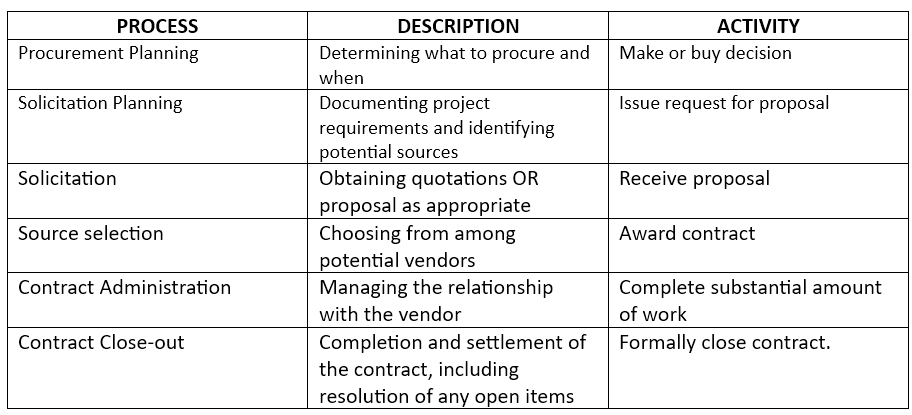
Procurement Management in VT Industry
Project procurement management is defined as the processes required to acquire goods and services for a project from outside the performing organizations. Many private companies use the word purchasing instead of procurement. Outsourcing is a process that is becoming more common in organizations globally. It can be applied to internal work orders, formal agreements, and contracts between organizational units within a single entity.
Procurement management in the Elevator Industry is a critical process that involves acquiring goods, services, and materials necessary for the production, installation, and maintenance of elevators. This sector requires a specialized approach due to the complexity of the products, stringent safety standards, and the need for high-quality materials and components.
When buying anything from a vendor, the buyer needs a contract, which becomes a key input to many of the processes within the project. The contract, more than anything else, specifies the rules and agreements for the project. The project manager should interact with a legal, contracting, or procurement department to deal with contracts. When the seller is completing its obligations to supply a product, PM treats those obligations as a project itself.
Project Manager’s Role in Procurement
The project manager must be involved in the creation of contracts and fulfill the following key roles.
- Know the procurement process.
- Understand contract terms and conditions.
- Make sure the contract contains all the project management requirements such as attendance at meetings, reports, actions, and communications deemed necessary.
- Identify risks and incorporate mitigation and allocation of risks into the contract.
- Help tailor the contract to the unique needs of the project.
- Fit the schedule for completion of the procurement process into the schedule for the project.
- Be involved during contract negotiation to protect the relationship with the seller.
- Project the integrity of the project and the ability to get the work done.
- Uphold the entire contract, not just the contract statement of work.
- Work with the contract manager to manage changes to the contract.
Common Reasons for Outsourcing
Cost Reduction: Both fixed and variable (Recurrent) costs of many products and services are lower when supplied by a firm that specializes in that area and can, therefore, offer economies of scale. It allows line employees to focus on the core business and core competencies. It provides access to specific skills & technologies, which would be too expensive for the company to acquire and maintain.
Staffing Flexibility: It’s often easier and more economical to use contractors to cover peak workload than to try to staff the entire project internally.
Increased Accountability: A well-written contract classifies responsibilities and sharpens the focus on key project deliverables.
The Sequential Procurement Processes:
- Plan Procurements
- Conduct Procurements
- Administer Procurement
- Close Procurements

Effective procurement management in the elevator industry ensures that the final products are safe, reliable, and meet all regulatory standards while maintaining cost efficiency and minimizing supply chain disruptions.




